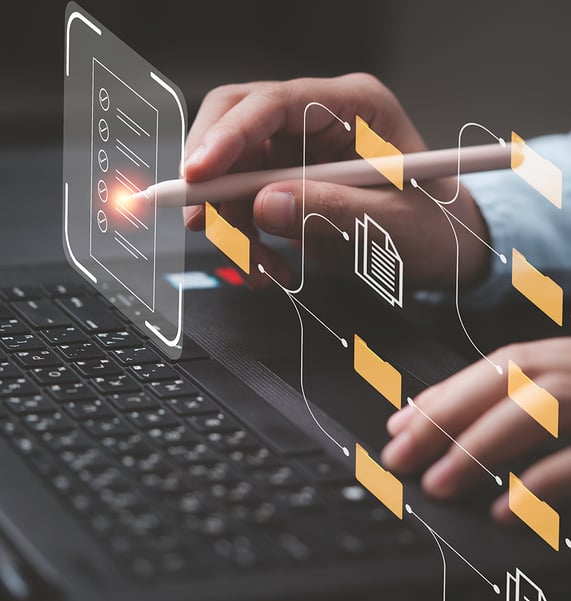The post-pandemic era has had a major impact on debt collection businesses like any other industry. We have seen a major decline in collecting the outstanding dues from the customer. Bloomberg previously reported that COVID-19 has added $19.5 Trillion to global debt.
This article will revolve around special skills and tools that translate more into the Art and Science of Collections. Most importantly, acquiring the tools that help you enhance your efficiency in collecting debts and developing the special skills that will put you in a higher productive zone compared to the past. Needless to say, these special skills and required tools are of the utmost need to collect outstanding dues efficiently in even the post-pandemic era.
The collection department is best operated with essential tools that facilitate all your collections activities to bring in efficiency and effectiveness to provide you with a high level of productivity.

Collections Activities:
In any organization, the collection department plays a vital role in assisting businesses to collect from non-paying customers which may be in the form of overdue accounts, unpaid loans, or other debts.
Although phone calls are still the preferred method of contacting customers, SMS, self-service, web/live chat, email, social media, and messaging apps all play a role in customer interactions following up after initial contact with the debtor.
However, if this does not yield results, the collection department may have to pursue other available recourses within the terms and conditions provided in the contract. For example, as a last resort, the department may opt for litigation by filing a case in a court of law. In addition, the department may have to trigger skip trace to locate debtors who have changed addresses or are actively attempting to avoid the debt collector within a certain amount of time.
This is just about the extent of work that is performed within the debt collection’s activities. To support these activities, essential tools and required skills are the most important factors to have for an efficient and productive collection department.
Essential tools:
There has been a considerable change in the debt collection landscape in the last decade. New technologies have given more options in contacting the customer to organizations.
As we can clearly see the demographic is divided when it comes to being contacted by the collection center. Millennials prefer or value the convenience of being able to access their debts, payment solutions, and payment methods at a time that works for them. On the other hand, however, a sizeable number still expect immediate interaction with a warm body especially when the situation is complex and most vulnerable.
When you are on a journey to collect outstanding debt from customers, your regular business hours may or may not suit the customer’s preference. Most reliable surveys and research suggest that over 20% of customers prefer to resolve their debt outside of business hours and want to engage with the collector when they’re ready or available. A large part of this is due to people not wanting to make sensitive phone calls concerning debt in the workplace or during office hours, or being unable to spend time going through digital channels when they’re in the middle of the working day. Especially, an increase in the cost of living crisis drags people in different directions. Such options allow you to give your customers more convenience when it comes to making payments is important for driving positive engagement with their debt.
The future of omnichannel approach:
With the omnichannel communication options, you can easily respond to each customer’s individual requirements, and interact with them via the method they prefer. Omnichannel communication can also help give you a clear oversight of all phone and digital channels, enabling you to seamlessly communicate with your clients, while tailoring your debt collection approach to their personal circumstances. However, it must be kept in mind that there is no redundancy in communication by using a multichannel approach as it tends to become overwhelming for a customer in financial difficulty and may result in a negative outcome.
A contact strategy can be formulated based on customer preference where the chances of engagement are high and can be embedded with your collection’s strategy.

Just like the multichannel communication option to engage the customer in the collection’s activities, if you are able to accommodate multiple payment options to allow your customer to pay on outstanding debt by their choice of payment mode is likely to generate more revenue for the collection center.
A way to do this is to provide seamless integration with payment processing systems that cater to various methods of money transfer. These may for example include web portals, automated mobile payment solutions, and virtual agents for automated payments. The important thing about promoting online payments via customer portals and self-service options introduce automation into the revenue recovery process. This channel of payments relieves the organization of the burden of repeated follow-up and provides customers with the convenience of paying through a secure connection from the comfort of their own homes.
Collection Self-Service systems can send thousands of customized and personalized messages to customers, via their preferred communication channels lowering the collector’s need. In addition, the timing and frequency of contacting debtors can be automatically scheduled to ensure compliance.

Explore our Customer Self Service solution
This brings us down to another vital tool called Customer Segmentation which is a key process in isolating various types of customers and applying the most suitable collections strategy that results in payments from the different classes of the customer. With a strong suite of digital debt collection software, you can establish assignment schemes for each collection campaign, considering factors such as the days past due, overdue amount, multiple products, and number of times in collections. The segmentation information empowers you to segment accounts based on the similarity of the groups of debtors. A 360 view of the customer allows you to profile the customer if supported by smart scripting allows dealing in a manner most suitable for the customer. This not only allows a specific way to deal with the customer, but it also takes away the hands-on training time for the new collectors on the job.
Another viable tool to consider would be the Automated Dialing System. With this system, agents can avoid manually dialing customer numbers which is a futile activity that takes productive time on a daily basis. Not only that, but advanced automated calling systems can improve connection rates by at least 200 %, enabling each collection agent to handle nearly twice as many calls per hour. In addition, predictive dialing software and automatic dialer algorithms can reduce wait times, dropped calls, and agent idle time.
Essential Skills:
Not everyone is cut out to be a debt collector. The job doesn’t usually require more than a graduate degree and doesn’t call for much-specialized knowledge. Yet, it’s often stressful and can cause emotional and mental strain. The ideal candidate for debt collection is a person who can persuade the customer to pay the outstanding and not endure its negative impacts.
The Collection staff has a particular profile, skill set, and knowledge of handling non-paying debtors. In a nutshell, a collector needs;
![]()
Patience and understanding:
This is one of the most important skills or virtues. You often come across a conversation or a situation that is most annoying with difficult and irate customers enabling you to stay calm and collected. Do not let the situation or the conversation derail you from your main objective of asking for the payment.
Empathy on the other hand is the ability to share and understand the emotions of others. Empathy is important because it helps us understand how others are feeling so we can respond appropriately to the situation. It is a social behavior and greater empathy leads to more helping behavior.
![]()
Persuasiveness, persistence, and firmness:
These skills are strongly connected with patience and understanding. When you have a greater understanding of the customer’s situation, you are most likely to persuade the customer persistently in a professional manner. At the end of the day, the objective remains that you collect what is due for payment.
In an article, The Necessary Art of Persuasion," Jay Conger, an Organizational Behavior professor, presented, that in order to be persuasive you must establish four critical elements:
1. Credibility 2. Common Ground. 3. Vivid Evidence. 4. Emotional Connection.
The debt collection business is all about your ability to relate to your customers and being persuasive means motivating people to do something you want them to do, which in the end, they want to do, too. Show them what's in it for them, and do it in a way that is genuine and effective.
![]()
Negotiation skills:
Debt collection heavily depends on Negotiation when you are in a situation where you know that the outstanding will not be paid instantly or in full at once. It allows a good collector to table multiple viable options before the debtor and allows them to choose the one that is best for them.
It is important to note that negotiation skill is a very powerful skill that requires some prerequisites such as effective communication, organization, persuasion, and active listening, to name just a few. Sometimes, negotiation and persuasion are used interchangeably but it is not true. The very nature of negotiation requires both parties to move closer together to achieve a compromise. Persuasion or influencing on the other hand is the process of getting the other side to do what you want them to do. The art of persuasion is often called negotiation because a persuasive collector is an excellent negotiator.
Summary
By nature, debt collection faces both typical and unique circumstances. A successful debt collector's profile is straightforward as mentioned above — immensely patient and polite, yet assertive and persistent. Critical thinking and negotiation skills are highly valued.
The significance of the debt collection business relies heavily on the approaches we adopt in communication and the most suitable treatment we can offer our vulnerable customers.
How we look at the debt collection business is a story that can build volumes of the books and it would not be enough.
The simplified way to equip the collections department in the most efficient manner is to allocate a budget that can build and prosper a unified collection depart that has more efficiency, effectiveness, and productivity. This doesn’t take more, than just a reasonable investment in tools and special skills which translates into a hefty investment in people who serve in the bloodline of the business.
